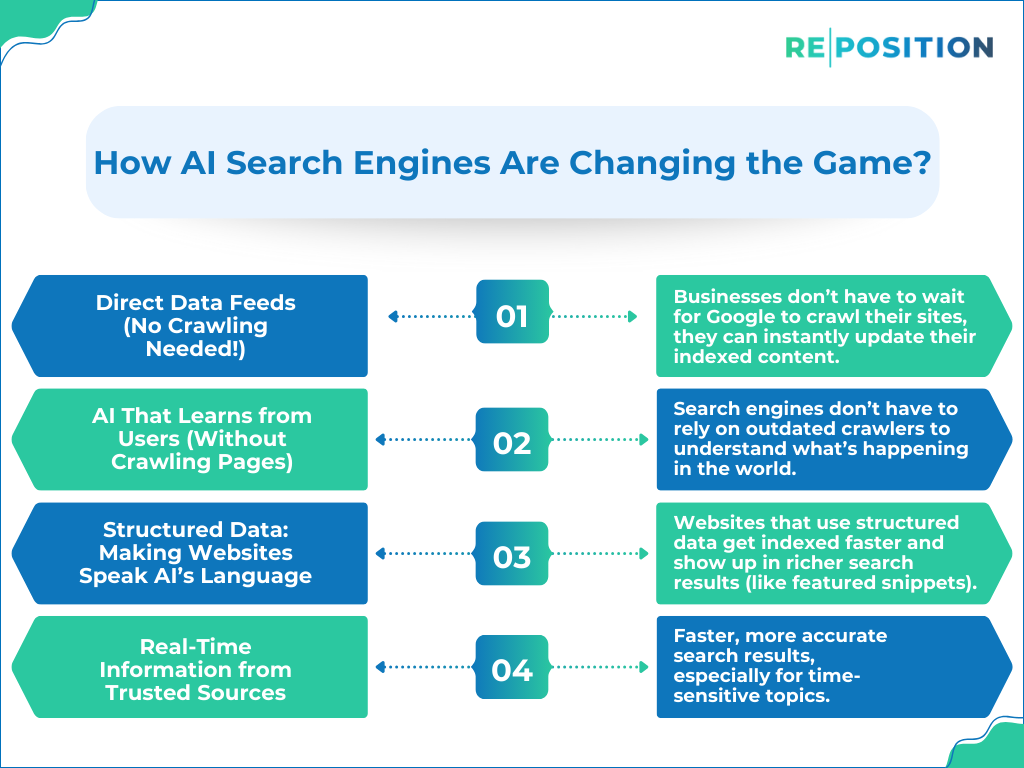Deep Learning Models
When you search for something on Google, do you ever wonder what happens behind the scenes? Why do certain pages appear at the top, while others seem to disappear into oblivion? The answer, in part, lies in the incredible advancements in deep learning. This technology has fundamentally changed how search engines rank websites, making SEO a more exciting (and, let’s face it, a bit more complex) game to play.
But here’s the thing, understanding deep learning’s role in search rankings doesn’t have to be intimidating. I’m going to break it down for you in simple terms. Whether you’re a business owner trying to improve your website’s visibility or a content creator aiming for that coveted top spot, understanding deep learning’s impact on SEO could be your game-changer.
What Exactly Is Deep Learning?
Think of deep learning as a “brain” for computers. It’s a type of artificial intelligence that enables machines to learn from data and get better at tasks over time, much like how humans improve skills with practice. Imagine teaching a computer to understand not just words but the meaning behind them, the context in which they’re used, and even how they relate to each other. This is how deep learning models work.
In the case of search engines like Google, deep learning models analyze everything, from the words on a page to the relationships between them. These models are not just counting keywords anymore; they’re working to understand the true intent behind a search and whether a page provides value based on that intent. And when I say value, I mean content that answers questions, solves problems or gives users what they’re looking for.
How Does Deep Learning Affect Search Rankings?

Now, let’s explore the real-world impact of deep learning on search rankings. Here’s where things get interesting.
1. User Intent: The Real Driver of Search
In the past, ranking well on Google was mostly about hitting the right keywords. You’d pick a few words that seemed relevant, sprinkle them throughout your content, and hope for the best. But deep learning has raised the bar by focusing on user intent.
Let’s say you search for “best running shoes.” You might think that Google should show you pages with the phrase “best running shoes” everywhere. But deep learning algorithms are smarter than that. They now understand the context. They know you’re probably looking for reviews, comparisons, or expert opinions, not just a list of shoes.
Deep learning allows Google to match your search with content that aligns with what you actually want, not just what the page is saying. It’s like Google has learned how to read between the lines, understand nuances, and cater to your specific needs.
So, what does this mean for you as a website owner or content creator? To keep up, your focus needs to shift. It’s no longer enough to stuff keywords into your content. You need to create value by answering real questions your audience is asking. Your content should be informative, helpful, and above all, human.
2. The Rise of Semantic Search: It’s About More Than Just Keywords
Deep learning has taken Google’s ability to understand semantic search to new heights. Gone are the days when Google would rely solely on exact keyword matches. Now, Google’s deep learning models understand the relationships between words, phrases, and even entire topics.
Let’s say you search for “how to tie a tie.” With deep learning, Google isn’t just looking for pages that say “how to tie a tie.” It also understands related terms, like “bow tie,” “step-by-step tutorial,” or even “different types of knots.” Google’s deep learning models grasp that these variations are connected, and they deliver more comprehensive search results.
For you, this means you need to be broader in your approach to content. Target related topics, not just the exact keywords. Dive deep into subjects, and provide as much value as possible on all related aspects. Cover every angle, and your content will stand out.
3. Natural Language Processing (NLP): Making Search Feel Human
Have you ever wondered why Google’s results are so spot-on when you phrase things differently? One minute, you ask a question like “What’s the best coffee maker?” and the next, you’re searching for “coffee machines to buy.” How does Google know it’s the same thing?
That’s Natural Language Processing (NLP) in action, powered by deep learning. With NLP, Google can understand the intent behind the words, not just the words themselves. It knows that “best coffee maker” and “coffee machines to buy” are essentially asking the same thing.
Now, here’s where it gets important for you as a content creator: Google’s algorithms want content that sounds natural, not forced. The key to ranking is crafting content that aligns with how real people speak and search, not content that’s optimized with keywords stuffed in awkwardly. Create conversational, relatable content that reflects how your audience thinks and talks, and Google will reward you.
4. Content Quality Trumps Everything Else
The days of focusing purely on backlinks and keyword stuffing are behind us. With deep learning, the quality of your content is the primary driver of rankings.
Google now assesses things like engagement, how long people stay on your page, whether they click through to other parts of your site, and if they find your content useful enough to share or comment on. Deep learning allows Google to measure these interactions and understand whether your content is genuinely valuable.
For example, if your blog post keeps visitors on your page longer than others, that’s a sign to Google that your content is meeting their needs. This kind of engagement will boost your rankings.
So, don’t focus on producing content just for search engines. Focus on producing content for real people. Be thorough, answer all possible questions, and make sure your content is easy to read and navigate. The better your content, the better your chances of ranking high.
5. Personalized Search Results: A Tailored Experience
Have you noticed how your search results seem more relevant to your personal preferences? That’s deep learning at work again.
Google now personalizes search results based on your search history, location, and even the devices you use. So, if your target audience is specific to a region or has particular interests, it’s essential to understand how to reach them more effectively.
The challenge for you is to be as targeted and specific as possible in your content. The more you understand your audience’s behaviors and needs, the better you can create content that resonates with them. Whether it’s using localized keywords or addressing a niche interest, personalizing your content is the way forward.
How Can You Optimize for Deep Learning Models?
Now that you know how deep learning is transforming search rankings, let’s talk about how you can leverage this shift to your advantage.
- Prioritize User Experience (UX): A great user experience – fast load times, mobile optimization, easy navigation – is crucial. Google loves websites that make life easier for users.
- Create Content That Solves Problems: Write content that genuinely answers the questions your audience is asking. Don’t just throw a few keywords on a page. Be the solution.
- Go Beyond Keywords – Think Semantically: Focus on broader themes and related topics. Google understands context better than ever, so make your content comprehensive and insightful.
- Improve Engagement Metrics: Keep people on your site! Engaging content will naturally lead to longer visits, higher interactions, and improved rankings.
- Use Structured Data: Implement schema markup to help Google better understand your content. This could help you land in rich snippets, giving your content more visibility.
The Future of SEO: Embrace Deep Learning or Get Left Behind
Deep learning is shaping the future of SEO, and the shift is only going to accelerate. Search engines will continue to evolve, becoming even more intuitive in understanding human language and user needs. For you, this means adapting to the changes, creating high-quality, user-centered content, and focusing on real value over gimmicks.
Remember, Google’s ultimate goal is to help people find the best, most relevant content. If you can align your strategy with that goal, your rankings will follow.

 SEO Services
SEO Services  Request a Quote
Request a Quote
 London
London
